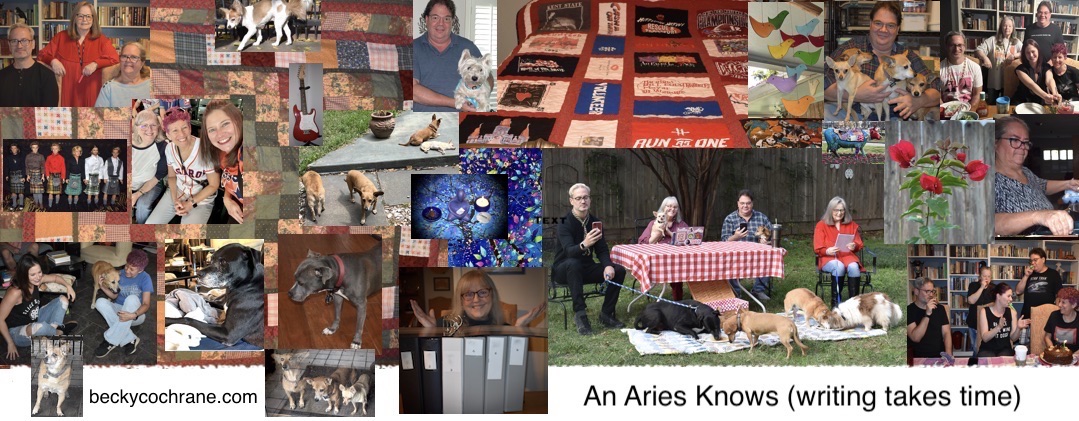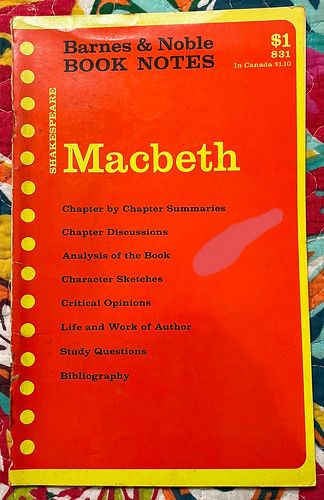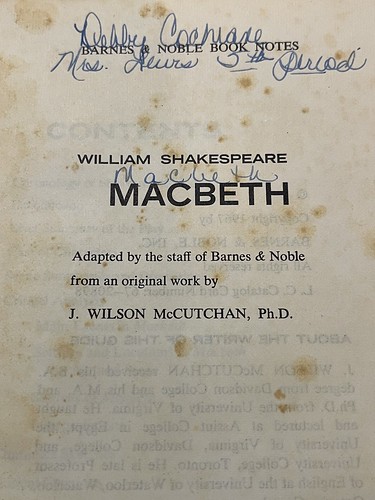 That’s a coloring book I picked up in September. I remember I mentioned a shopping trip that netted me some cool finds, and among those were several coloring books, though there’s a much more fun one I’ll share in the future.
That’s a coloring book I picked up in September. I remember I mentioned a shopping trip that netted me some cool finds, and among those were several coloring books, though there’s a much more fun one I’ll share in the future.
Going into September, I knew that month, and October, and even a little of November, would deliver certain specific challenges. I’m a risk-averse person, so I like to assess what’s coming and its risks, then I practice risk management. This doesn’t mean I don’t take risks. I’ve taken plenty in my life. But there are thoughtless risks, and there are calculated risks. As I aged, there were far fewer thoughtless ones, and better-managed calculated risks. Maybe that’s called maturity, or maybe we just better disperse our energy on things with more appealing payoffs or things we have some degree of control over.
One thing we can never control, even if we fool ourselves otherwise, is the behavior of other people. When I manage risks, that’s always the X in any equation. However, if they are people with whom I have history, I factor in the range of their historical behaviors to include in my risk-taking/coping decisions.
Still, people can surprise me, and I mean that in both directions–good and bad. This is, to me, part of being human, and mostly the choices and behaviors of other people have almost nothing to do with me. They’re doing their own life math and risk assessment.
One of the things scheduled during these three months was Tim’s trip to Maine. Through the years, he’s chosen different seasons to visit his family and friends there, and as his parents have aged, one reason for him to go during fall is to help them prepare for winter. It’s good hard work, chopping, stacking, and storing wood and otherwise getting things in order around their home before winter, a season that’s no joke in Maine. I miss him when he’s gone, but I like these trips because he always returns with stories to tell, and he connects with friends who I’ve come to know and care about through him.
He left Tuesday. I’ve been working on sewing doll clothes for the past few weeks, and sometimes while I do that, I’ve been rewatching a TV series I enjoyed the first time I streamed it a dozen or so years ago (fun fact: people with anxiety tend to repeat experiences, whether re-reading a book, watching a favorite movie or TV show again, ordering the same thing off a menu, etc.). When people I love travel, I need distractions because travel equals risk, and it’s mostly risk beyond my control. And as people who know me well often do, Tim let me know he’d arrived safe and sound to his parents’ house. That meant when I shut down my laptop Tuesday night after finishing an episode, and put away all my sewing stuff, then went to bed, I fell asleep pretty easily.
Wednesday was a nice day with the dogs (including Tim’s and Debby’s, because she’s also traveling), sewing, light housekeeping and bill paying, doing my daily online things, and just taking it easy.
Then Jim texted me.

I’ll spare you the many texts that took place Wednesday night and all day and night today between Jim, Tim, Tom, and me. Tim and his family are okay, and by checking in on social media, I know that many of his friends who I interact with are okay, as well. While that gives me comfort, once again, the peace in cities and small towns has been shattered by gun violence.
I read recently that one in five people in the U.S. have had their lives negatively impacted in some way by guns. I paused to think about that, and within a few seconds, I was able to list these incidents: A woman who was a second mother to me took her life by shooting herself with a handgun. A boyfriend was held up at gunpoint in a store where we both worked. A friend mugged on a city sidewalk was told the mugger had a gun pointed at him. An acquaintance had an artificial leg because a gun went off at a party among high school friends and her leg was so badly shot it had to be amputated. Someone very close to me, a hunter who was always responsible with guns, once left his gun in the grass next to the car before he and his friends drove away. They went right back when he realized his mistake, but the gun was gone, and he never was able to locate its finder or know where it might end up or how it might be used. Someone I love more than words can ever adequately express called me just after dawn one morning to tell me he had a gun pointed to his head and wanted to talk to me before he pulled the trigger so I could tell him what I thought. I was able to persuade him to put the gun away by reminding him of the pain the first incident on this list caused me. I told him as long as the gun was out of my sight, I’d be in my car and with him in minutes. He promised to put the gun away and wait for me. He kept his promise; I kept mine; I didn’t lose a friend that day or any other day of his life because of suicide. I have another friend who accidentally fired her gun inside her house one day; thankfully, nothing but some property was damaged.
That’s seven bad gun stories from my life, and it took me a lot longer to record them here than to remember them. I know people who are gun enthusiasts and/or who own guns for protection. I’ve known many hunters who had shotguns and rifles, many businesses where a manager kept a gun behind the counter, many people whose lives involve a lot of driving, including at night, who travel with a gun next to them. I know people who open carry and conceal carry. I’ve known people in the military, bodyguards, and police who carried guns as part of their work.
I get it. Guns are part of the culture. But I’ll never understand why people think laws managing gun ownership violate their rights. I’ll never understand homes where children and strangers can easily find and use guns and create tragedies that could have been avoided with even basic risk management. And I’ll never understand why greed drives legislators to support private, unlimited, unregulated ownership of weapons meant for WAR, for hunting and killing HUMANS. I’ll never understand why the most specious use of words written in a different time, for different reasons, regarding very different weapons, uses as justification for owning weapons of war these words:
“A well regulated Militia, being necessary to the security of a free State, the right of the people to keep and bear Arms, shall not be infringed.”
The National Guard fulfills the necessary WELL REGULATED militia, as it is staffed by We THE PEOPLE who want to serve in that capacity. They are citizen responders in times of crisis, and their mission is to serve and protect the public. Prohibiting citizens who are not in the National Guard, or the military, or on special teams in law enforcement, from owning weapons of war is not infringing on their rights. They still can own guns for protection, hobbies, hunting. Asking for responsible, accountable gun ownership is no different from any other thing we do to protect ourselves and one another (e.g., driving and traffic laws and requirements, swimming pool “attractive nuisance” requirements, food and drug standards and laws, maintaining adequate crowd control in parks, at events, in theaters, stadiums, and other venues). Sometimes our laws and standards are ignored or disobeyed, and the consequences can be deadly. But we don’t just give up. We impose fines and sanctions and shut down those who refuse to comply and protect the public. And if the people who have been elected or appointed to protect us choose instead to make themselves rich by exposing us to deadly risks, we vote them out or fire them. Or we should, particularly for the vulnerable.
Some facts about a population so many seem to care about from KFF: The independent source for health policy research, polling, and news
Firearms account for 20% of all child and teen deaths in the U.S., compared to an average of less than 2% of child and teen deaths in similarly large and wealthy nations.
The U.S. also has the highest rate of each type of child and teen firearm death-—suicides, assaults, and unintentional or undetermined intent—among similarly large and wealthy countries.
In 2021 in the U.S., the overall child and teen firearm assault rate was 3.9 per 100,000 children and teens. In the U.S., the overall suicide rate among children and teens was 3.8 per 100,000; and 1.8 per 100,000 child and teen suicide deaths were by firearms. In comparable countries, on average, the overall suicide rate is 2.8 per 100,000 children and teens, and 0.2 per 100,000 children and teens suicide deaths were by firearms.
These statistics point to the reality that we are failing to protect a vulnerable population among us, not only because of school shootings, but by a lack of managing the firearms we own, by allowing teens or people with mental illness easy access to firearm purchases, by not reporting lost or stolen weapons, and by failing to educate ourselves and our children about firearms. Education is not an infringement of rights, and the impact on families and society of ignorance is staggeringly tragic.
Tonight, my thoughts are on the dead and injured of the mass shooting in Lewiston and their families, and the residents of Lewiston, Bowdoin, Lisbon, and Auburn, some of those the towns where Tim’s family and friends live. Businesses and schools are closed, and residents have been asked to stay home and inside with their doors locked while law enforcement continues their search for the suspect.
I read comments from Mainers today that said, “This doesn’t happen in Maine,” and “People are nice here!” More murders occurred last night than is usual for an entire year in Maine. In 2000, our friend Steve C and I visited James in Portland–he still lives there–and drove into rural areas outside Portland, too. It’s true that Maine is a beautiful place with wonderful people. I’m so sorry the state is in the spotlight for this most terrible of reasons that connect it to other states and communities who understand all too well the trauma Mainers are suffering.
I started a coloring page in the book pictured at the top of this post, and I quickly realized that I was “comfort coloring.” I picked a beautiful place that looks like Maine. I immediately colored the dog, his bed, bowl, and bone and mentally called him “Striker,” the name of Jim’s late golden retriever who was one of the best dogs ever (it’s not only Jim who thinks so!). I made the grass as green as spring. I colored the porch floor gray, like the one at my grandfather’s house, because of so many happy memories there. I’ve already “silvered” the steam rising from the coffee cups, and the sun is bright in the sky and will rise over a place where only good things happen and people are, indeed, nice.

I can’t control all risk or fix all the problems that plague us. Sometimes the best I can do is find peace within my space and encourage others to do the same.




 That’s a coloring book I picked up in September. I remember I mentioned a shopping trip that netted me some cool finds, and among those were several coloring books, though there’s a much more fun one I’ll share in the future.
That’s a coloring book I picked up in September. I remember I mentioned a shopping trip that netted me some cool finds, and among those were several coloring books, though there’s a much more fun one I’ll share in the future.












